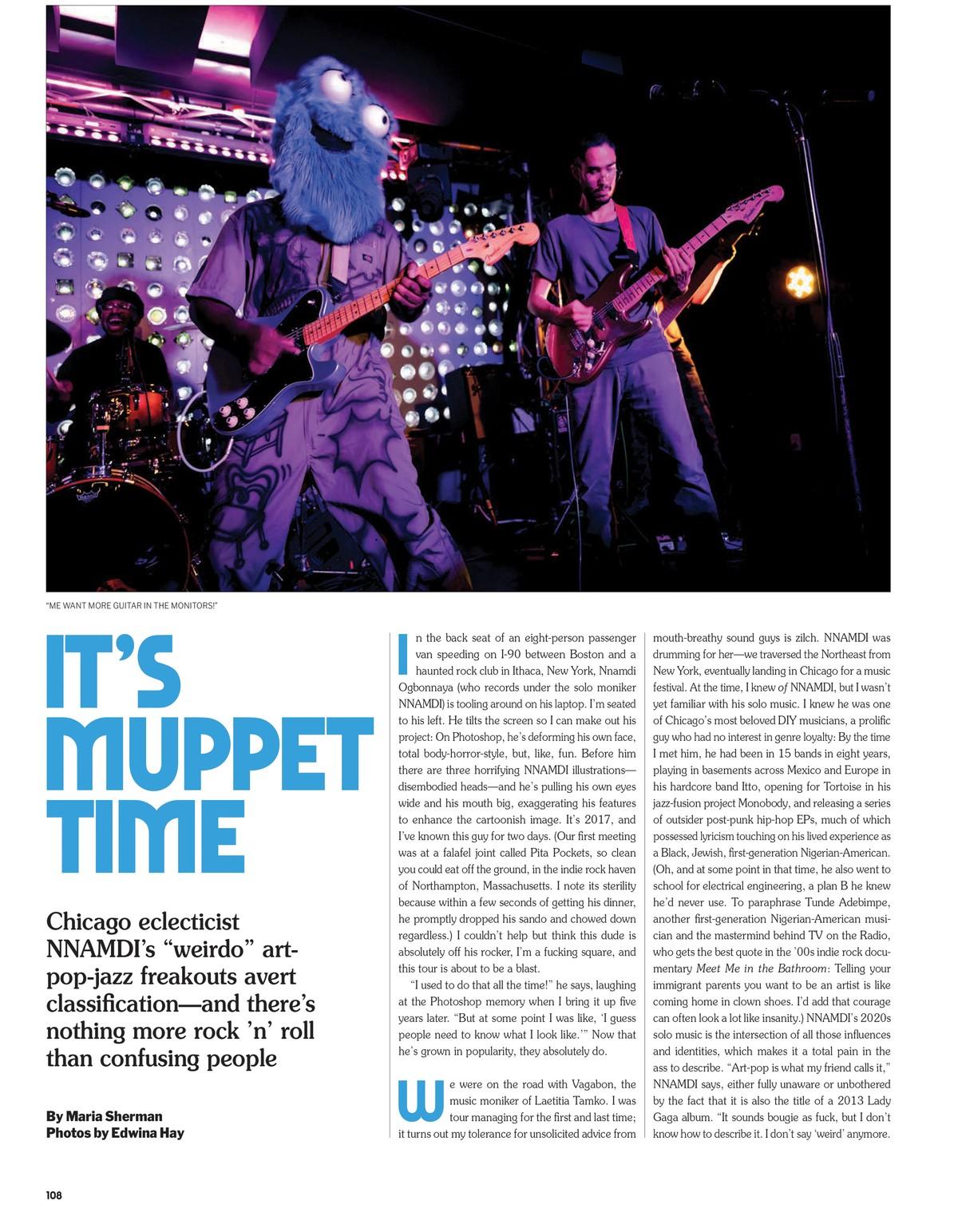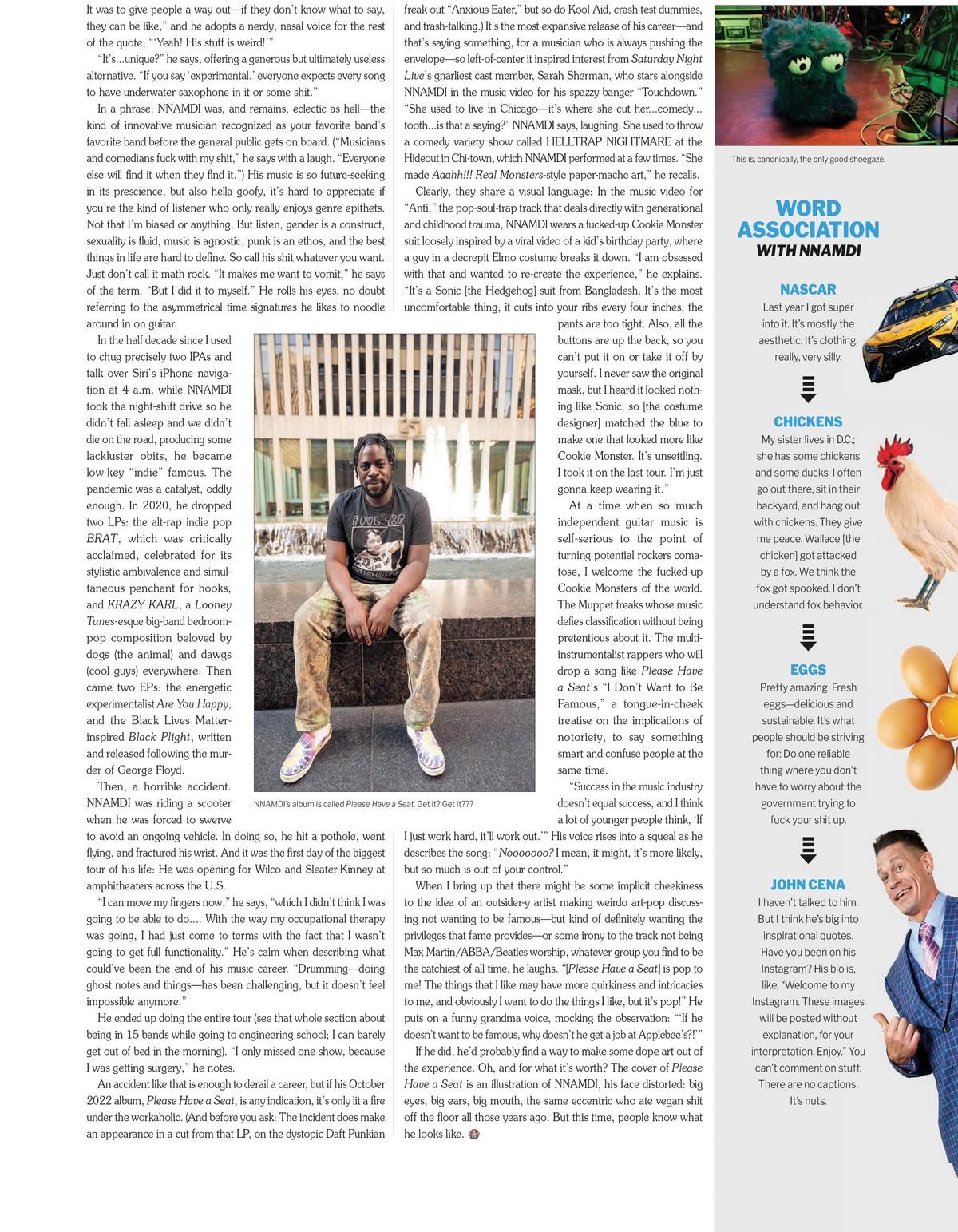IT’S MUPPET TIME
Chicago eclecticist NNAMDI’s “weirdo” artpop-jazz freakouts avert classification—and there’s nothing more rock ’n’ roll than confusing people.
March 1, 2023


Loading...

Chicago eclecticist NNAMDI’s “weirdo” artpop-jazz freakouts avert classification—and there’s nothing more rock ’n’ roll than confusing people.


Loading...